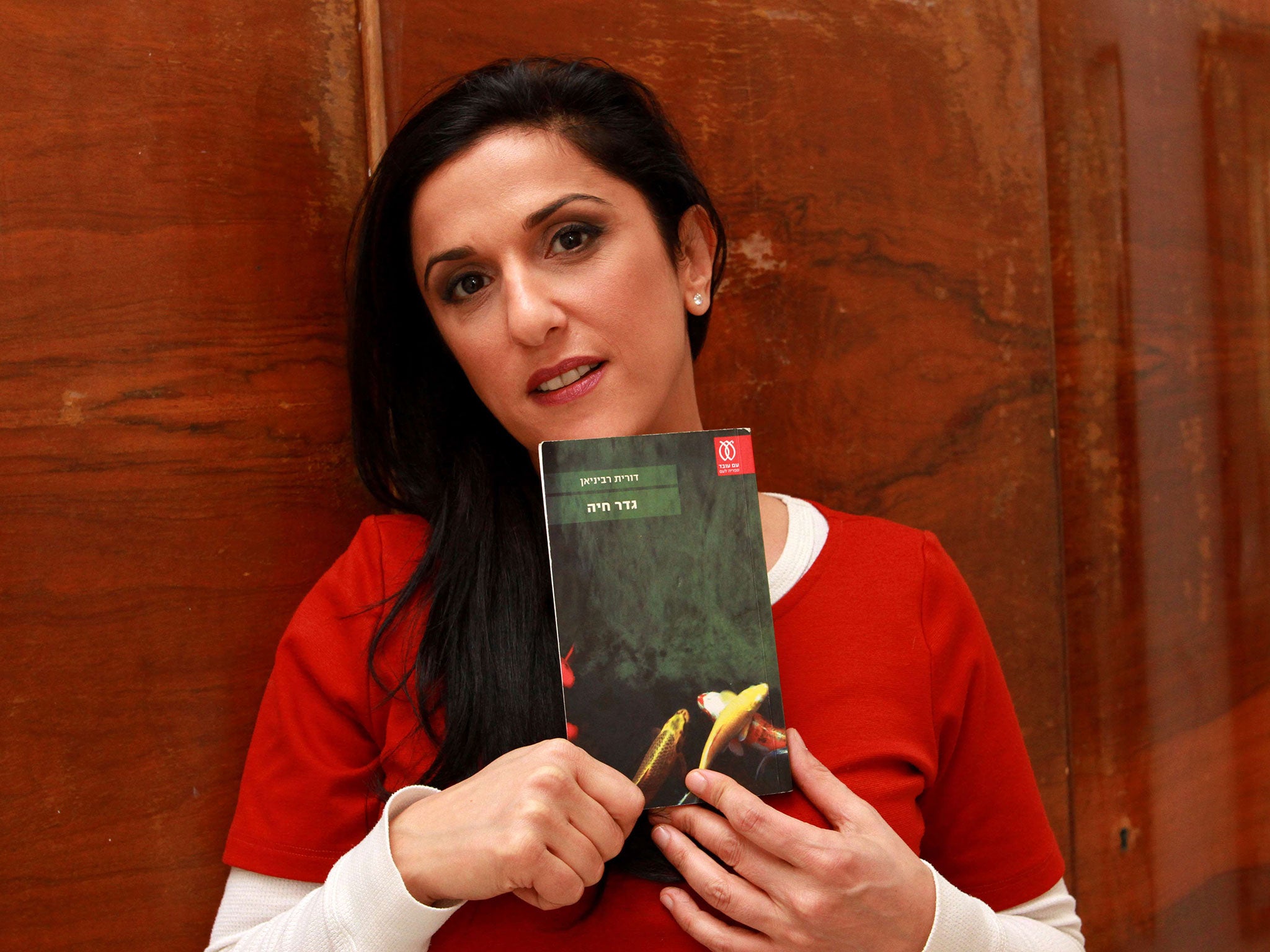Israel bans novel from schools that features Israeli-Palestinian love affair
Book that brought new dimension to classes falls foul of Israel’s education ministry

It is a literary love story between an Israeli woman and a Palestinian man which some hoped would unite a region divided.
But today Israel’s Ministry of Education excluded from school literature curriculums the novel on the grounds that it could promote mixing between the two nations and undermine the distinct identity of Israeli Jews.
The move was the latest crackdown on humanistic currents by the Ministry, headed by Naftali Bennett, a hard-right ally of Prime Minister Benjamin Netanyahu. In recent weeks, Mr Bennett has also banned the dovish ex-soldiers’ group Breaking the Silence, which seeks an end to Israel’s 48-year occupation of the West Bank, from speaking to pupils. Last month, the ministry adopted a new civics textbook that critics said favoured Israel’s Jewish character over democracy as a value, and marginalised an Arab minority.
The novel, Borderlife, by Dorit Rabinyan, one of the country’s most respected authors, tells the story of Hilmi, a Palestinian painter, and Liat, an Israeli translator, who meet in New York and fall in love. The Israeli-Palestinian conflict at times impinges on their relationship but does not break it up as long as they are based in New York.
Eventually they go their separate ways with Hilmi heading back to Ramallah in the West Bank and Liat to Tel Aviv on Israel’s north coast. The book was initially added to the literature curriculum in response to requests by teachers. A committee including academics and veteran teachers reviewed it and deemed it appropriate. But officials in the ministry, who received the backing of Mr Bennett, overruled the committee.
Senior education ministry official Dalia Fenig wrote in a document explaining the refusal that was cited in the Haaretz newspaper that large segments of the Israeli public would find the book threatening. “Intimate relations between Jews and non-Jews and certainly the open option of institutionalising them through marriage and establishing a family – even if that doesn’t come about in the story – are grasped among large segments of the society as a threat to the distinct identity,” she wrote.
Ms Fenig went on to suggest that Israeli young people could be encouraged to pursue relationships with Arabs by the book. “Adolescents do not have the systemic view that includes considerations of preserving the identity of the nation and [understanding] the meaning of assimilation,” she wrote.
Tamar Zandberg, an MP for the opposition party Meretz, blasted the decision, saying it reflected “racist censorship whose goal is apparently to raise a racist and obtuse generation that does not see Arabs as humans, or does not see them at all”.
An organisation representing school headteachers in the country has asked that the decision be reversed.
Noam Arnon, a leader of the Jewish settlers in Hebron in the West Bank also took issue with the decision. Mr Arnon said he opposes mixed marriages on the grounds that “those who understand the mission of the Jewish people want the next generation to be Jewish too”. He said that not losing Jews to mixed marriages is especially important after the murder of six million Jews in the Holocaust.
But, Mr Arnon noted, the couple in the book do not actually get married “so it is complicated”. He added that the controversy would merely boost its sales, the opposite result of what the Ministry intended. “Whoever took this decision doesn’t understand how the democratic and liberal world works,” he said.
Join our commenting forum
Join thought-provoking conversations, follow other Independent readers and see their replies
Comments
Bookmark popover
Removed from bookmarks